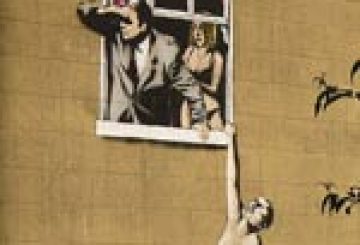 Introduction
Introduction
We live in a world of image but also of sound. TV, radio, work presentation, films,… all these media use the voice as support of message or object itself of the medium. If we are used to hear voices, the work of dubbed is often mis-known or totally ignored. Clara Vega tells us more about this hidden profession.
How do you define the work itself of dubbed voice?
It’s simply a translation, or an adaptation, if you prefer. When you are reading a novel translated from another language, you are actually reading the adaptation a translator made some time ago. Dubbing is the same concept. You listen to a translation from the original script so that you can devote your attention to cinematography art instead of reading subtitles that often won’t let you enjoy the film (it becomes a narrated novel).
The actors will have, obviously, different voices, but the words will be (should be) in perfect synchrony with the movement of their lips. Achieving that is an art itself. It’s a different acting skill as the actors mustn’t contribute at all to the character; they just impersonate what has been already created by the original cast.
I wouldn’t say there are different categories of dubbing: the process is the same for cartoons, real-actions films or series… The actor goes to the studio and watches his take with the original soundtrack three or four times before recording, after dubbing director’s explanations. That’s the rehearsal. Then, silence in the studio, red light and record! The complete dubbing of a series episode usually takes one whole morning. The same process for a film takes a few days. We are talking about the recording process as the sound technicians have to mix levels and so on later, which could take up to a week.
 What are the challenges, especially for translated films?
What are the challenges, especially for translated films?
Maybe the most important challenge is keeping the audience’s attention. Lately, many people –especially the young– gets tired of waiting for the release in their own countries of the last episode of their favorite series, so they tend to search for that chapter in original version with subtitles in the Internet, where usually can be found just after its broadcast in the States or the UK. You can’t compete against that; quality vs anxiety.
If a studio strives for dubbing a TV series that fast, the quality will definitely be affected.
Assuming that the audience won’t notice or allow a poor dubbing is a terrible mistake.
 Did you see evolutions since the beginning of your career? What are, according to you, the further prospective and challenges for the profession?
Did you see evolutions since the beginning of your career? What are, according to you, the further prospective and challenges for the profession?
An increasing trend is hiring “celebrities” (singers, TV presenters… not necessary good actors) for dubbing some films. I’m not talking about cartoons made over a recording session as it is done in the original soundtrack. That’s not strictly dubbing (they are the first acting and that inspires drawers to give personality to the character).
Using celebrities for dubbing is clearly a marketing strategy that really beats me… How someone can go to the cinema moved by hearing those popular local artists instead of enjoying a film? Their work is usually so average… even terrible! In the last years, having “celebrity voices” in dubbing is so common in animation or some comedies. The result is disturbing: you hear secondary actors with a truly superior personality to the main character. I always avoid that kind of dubbings. I love good dubbings. But if the dubbing throws me out of the story, I immediately switch to the original soundtrack.
Links
- Eldoblaje (Spain)
- Synchronkartei (Germany)
- Il Mondo dei doppiatori (Italy)
- Ojectif cinema (France)




You must be logged in to post a comment.